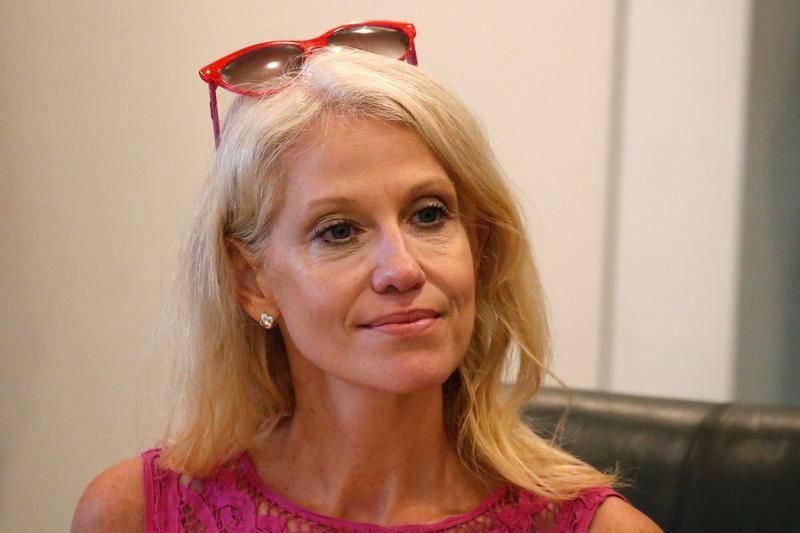Women's rights groups respond to Kellyanne Conway, saying rape is not a simple matter of physical strength
Trump campaign manager's comments, implying women are raped because they are physically weaker than men, will haev done little to improve Donald Trump's standing among female voters

Violence against women is far more complex than a simple matter of physical strength, according to rights groups who have condemned Donald Trump's campaign manager's comments that rape would not exist if women were as strong as men.
Instead they say power, control and conditioning are all factors rather than simple brute force.
Republican pollster and strategist Kellyanne Conway made her remarks in 2013 during a PBS broadcast and they resurfaced this week, soon after she was promoted to a senior position in the Trump campaign.
“If we were physiologically – not mentally, emotionally, professionally – equal to men, if we were physiologically as strong as men, rape would not exist,” Ms Conway said. “You would be able to defend yourself and fight him off.”
Sara Darehshori, senior counsel in the US program at Human Rights Watch, told The Independent that Ms Conway’s comments ignored the fact that victims were often incapacitated or vulnerable - and that rape victims can also be men - several scenarios that have no correlation with physical strength.
"Implying that assaults would not occur if women were stronger is not only wrong, but also reflects outdated attitudes blaming victims for their assaults," she said.
Kristen Houser, chief public affairs officer at the National Sexual Violence Resource Centre, said that a fifth of the US population suffered sexual assault during their lifetime, and it often came down to abuse of power and control rather than brute strength.
"The experience of attempted rape is as equally traumatising [as rape]," she said.
Along with the well researched notion of fight or flight, another very common biological response to a traumatic event is to freeze up.
"It has to do with the way our body processes sensory information and the chemicals that our brain emits, so when we hear survivors say they can’t move their arms or they can’t find their voice to scream, that is a very real response," she said.
The controversial comments from Ms Conway have likely done little to bolster Mr Trump's favourability ratings among women, a majority of whom are backing Hillary Cinton.
Mr Trump’s son, Eric Trump, was also recently criticised for claiming that "strong, powerful" women would not let themselves be subjected to sexual harassment at work, pointing to his sister, Ivanka Trump, as an example.
Lee Paiva, president of No Means No Worldwide, works with women across the world, teaching empowerment as well as self-defence classes.
She argued that women are “socialised” from childhood to be polite and to take orders, which can even disadvantage women when they are under attack.
"I was attacked when I was 15. I didn’t yell, even though I was in a house of 10 [people]," she said. "There is this perception that if you fight back, you will make him angrier, and he will kill you."
"We ask for a moment of calm and think what you have to fight with - your eyes, your mouth, your elbows, your feet," she added.
She added that physical training and the ability to defend yourself only made up “one third” of their training, however, while the rest came down to education and empowerment.
Ruth Glenn, executive director of the National Coalition Against Domestic Violence, accused of Ms Conway of victim blaming and said more focus should be put on the perpetrator rather than the victim carrying out self-defence.
"When we make a statement like that we’re holding victims accountable," she said.
"It’s about a culture - it’s not about whether a woman is empowered and strong. I know plenty of strong and empowered women who are subjected to harassment and unequal treatment. It’s an indication of a culture that is still patriarchal."
Many rapists will know their victim, she added, and will have learnt their vulnerabilities.
In short, she said, fighting violence against women comes down to much more than beefing up at the gym.
Join our commenting forum
Join thought-provoking conversations, follow other Independent readers and see their replies
Comments